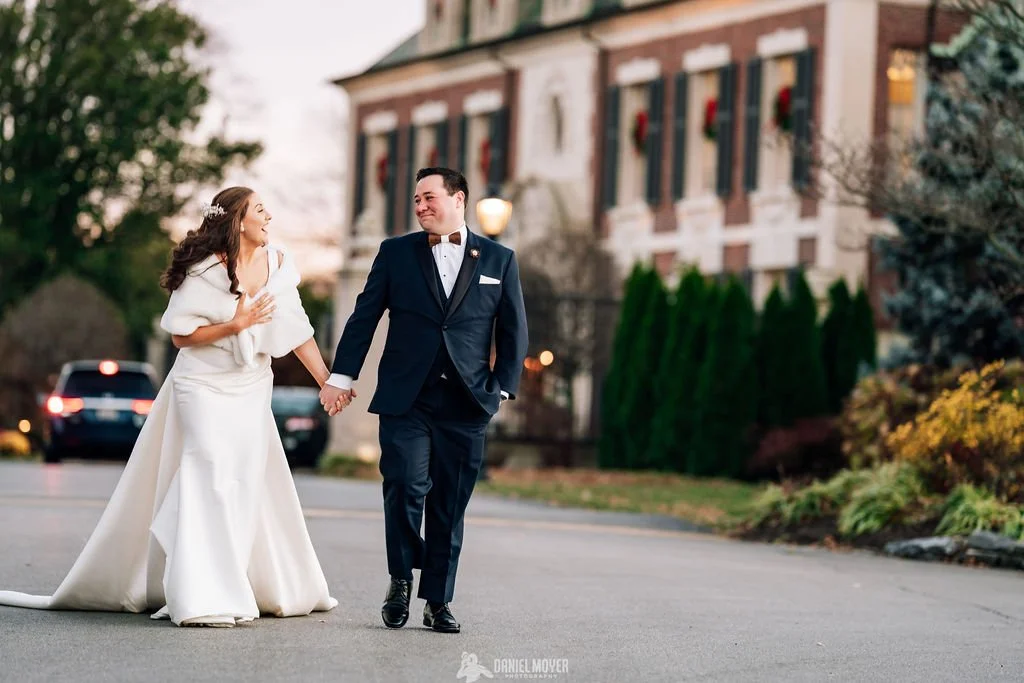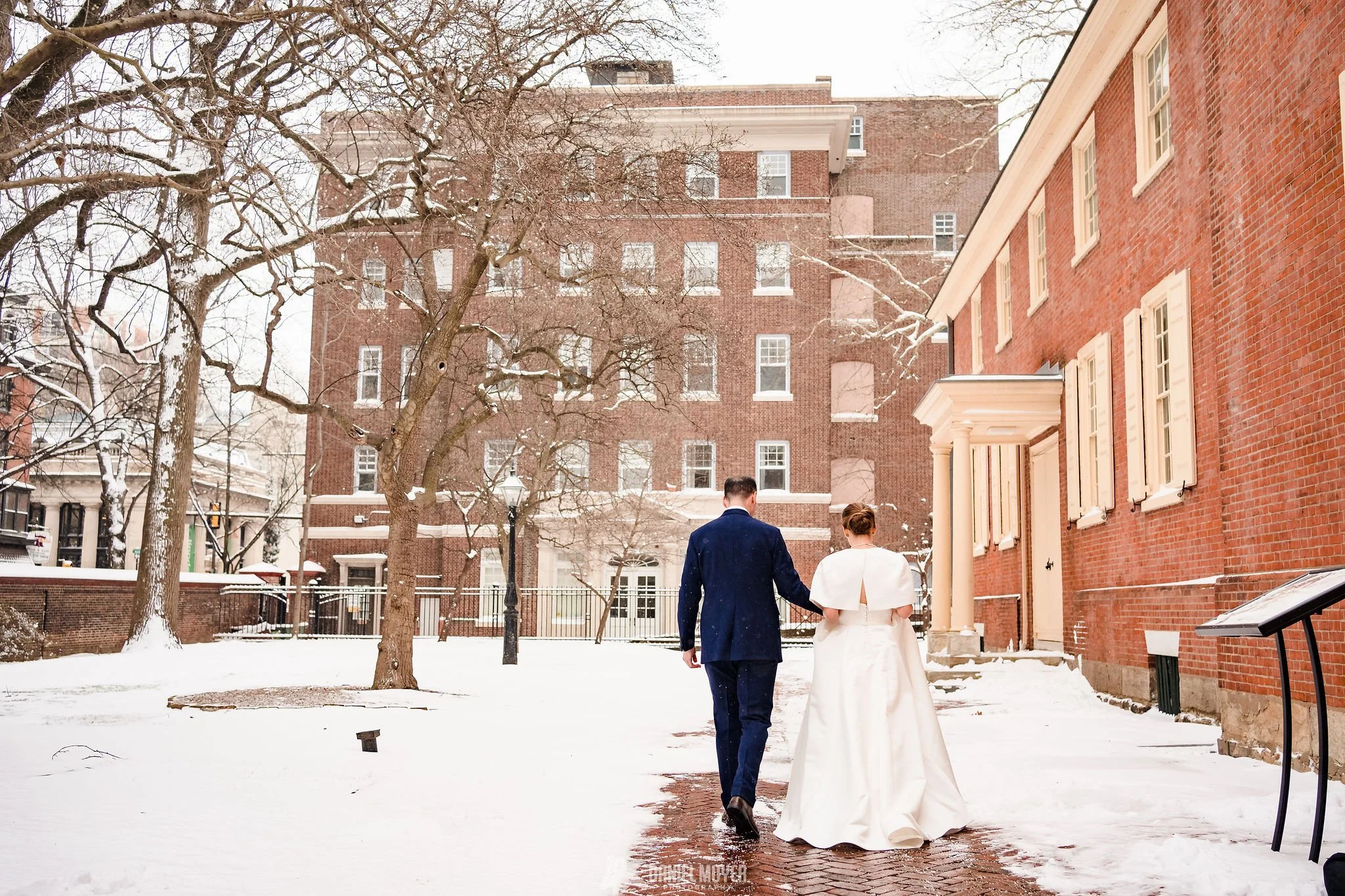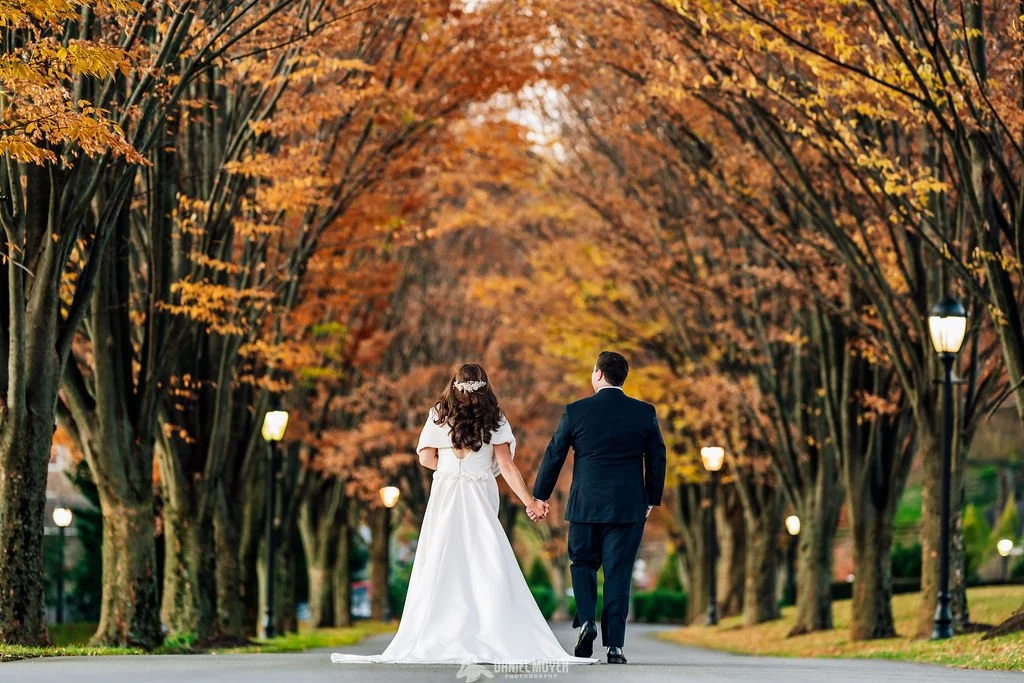How to Handle Family Opinions About Your Wedding Over the Holidays
Picture this: you’re at Thanksgiving dinner, passing the mashed potatoes, when someone across the table asks, “So… have you booked your venue yet?” Before you can answer, another relative chimes in: “You have to get married in a church. That’s just how it’s done.”
Sound familiar?
The holidays are full of love and togetherness, but for engaged couples, they can also bring an avalanche of unsolicited opinions about your wedding. While most comments come from a place of excitement (or tradition), they can easily leave you feeling overwhelmed, defensive, or second-guessing decisions you were once confident about.
The good news? With a little preparation and perspective, you can navigate these conversations with grace — and even (*gasp*) use the holiday season to your advantage.
Photo by M2 Photography
Why Holiday Conversations Can Feel Overwhelming
All eyes on you. You’re newly engaged or in the thick of planning, and gatherings give everyone a chance to weigh in at once.
Financial involvement. If family members are helping cover costs, they may feel entitled to influence your choices.
Tradition vs. modern weddings. Some relatives project what their wedding looked like onto yours.
The comparison game. Cousins, siblings, or friends’ weddings often become the measuring stick.
If you’re feeling this pressure — you’re not alone. Almost every couple faces it.
Common Types of Holiday Wedding Commentary
The Traditionalist: “You have to get married in a church.”
The Budget Hawk: “You’re spending how much on flowers?! That’s ridiculous.”
The Timeline Pusher: “You haven’t booked yet? You need to hurry.”
The Comparison Maker: “You know, when your cousin got married, they…”
Recognize these patterns for what they are. And remember, you don’t have to absorb every opinion.
Photo by Daniel Moyer Photography
Strategies for Navigating Family Opinions
1. Go In as a United Front
Before you even step into the gathering, talk with your partner. Decide together:
What details are you comfortable sharing?
Which topics are off-limits for now?
How will you support each other if someone presses too hard?
Presenting yourselves as a team not only strengthens your bond but also sends a subtle message: this wedding is about both of you making choices together.
2. Set Boundaries with Grace
Not every question needs a full answer. Having a few neutral, prepped responses can save you from being caught off guard:
“We’re still figuring out what’s right for us.”
“That’s a great idea — we’ll keep it in mind.”
“We appreciate the input, but we’ve got a good handle on that part.”
Boundaries don’t need to be confrontational; they’re simply a way of protecting your peace.
3. Divide and Conquer
Sometimes it’s easier if one person fields certain questions. Maybe your partner is better at handling budget chatter while you’re more comfortable talking about vendors. You can also tag-team: if one of you feels cornered, the other can step in with a redirect.
This approach keeps either of you from carrying the full emotional weight.
4. Pick Your Battles
Not every comment is worth a fight. Ask yourself:
Does this opinion affect the overall vision of our day?
Or is it harmless commentary we can smile and nod through?
It’s okay to let Aunt Susan debate napkin colors and what SHE thinks will look best — as long as she’s not dictating your ceremony vows. (Plus, she probably won’t even remember which color she said.)
5. Redirect the Conversation with Intention
Instead of awkwardly changing the subject to the weather or holiday traditions, invite your relatives to share:
“What’s your favorite memory from your own wedding?” (If they are/were married)
“If you could go back, is there anything you would do differently?”
“What’s the best part of a wedding you’ve been to recently?”
These questions shift the spotlight, make your relatives feel valued, and sometimes even give you nuggets of wisdom — all while keeping your boundaries intact.
Photo by Daniel Moyer Photography
Turning Holiday Time Into Something Helpful
It’s easy to focus on avoiding unwanted advice, but holiday gatherings can also be a goldmine if you approach them with intention. Instead of bracing yourself for every comment, think about what you can use this time for:
1. Collect Practical Information
Addresses for your guest list. With everyone in one place, it’s a perfect chance to confirm mailing addresses — no endless text threads later.
Dietary restrictions or must-have traditions. Ask if anyone has allergies or meaningful traditions they’d like to share so you can honor them thoughtfully.
Family heirlooms. Maybe Grandma’s veil or Dad’s cufflinks could be part of your day — you won’t know unless you ask.
2. Gather Stories and Inspiration
Ask about favorite memories from weddings they’ve attended. What stood out? What did they love?
Flip it: What’s one thing they regret about their own wedding? These insights often spark meaningful conversations and can help you clarify your own priorities.
Encourage them to share traditions that have been passed down. Sometimes these conversations reveal meaningful details you hadn’t even considered.
3. Delegate the Small Stuff
Families love to feel involved, but involvement doesn’t have to mean making big decisions. Instead, give them clear, helpful roles:
Have a crafty cousin? Let them help with a DIY detail like signage or favors.
Is your aunt a photo collector? Ask her to put together a family memory table.
Tech-savvy sibling? Have them set up your wedding website or playlist suggestions.
These tasks make people feel included without handing over creative control.
4. Use the Time for Face-to-Face Clarity
Some conversations are just better in person:
If you need to discuss contributions or budget help, it may feel less awkward in a natural, face-to-face setting.
Clarify expectations now to avoid misunderstandings later (especially around guest lists or cultural traditions).
5. Strengthen Your Vision by Talking It Out
Hearing family stories and opinions — even if you don’t take all the advice — can help you and your partner refine what matters most to you. Sometimes hearing, “We wish we had spent more time with our guests during Cocktail Hour” reminds you to prioritize what’s truly important for your own day.
Photo by Daniel Moyer Photography
Remember Who This Wedding Is For
At the end of the day, your wedding is about you and your partner — not pleasing every extended family member. That doesn’t mean ignoring your loved ones, but it does mean prioritizing your values, your vision, and your peace of mind.
And if a conversation starts to feel overwhelming? Step outside for some fresh air, or agree on a signal with your partner that says, “I need backup.”
Holiday conversations about your wedding don’t have to be stressful landmines. With boundaries, a little humor, and a lot of perspective, you can handle family opinions with confidence — and keep the focus on what matters most: celebrating your love.




